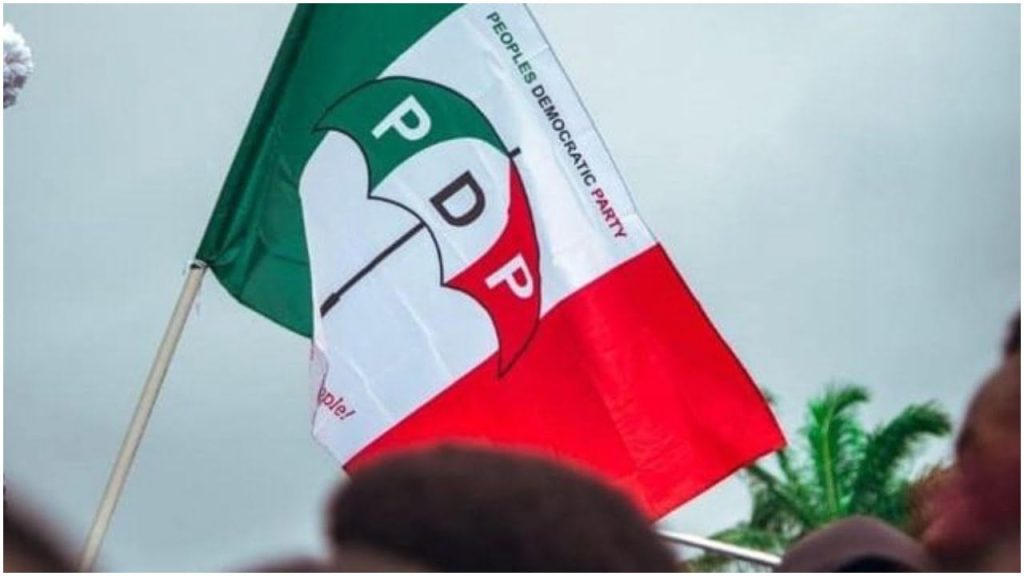Senator I. D. Gyang’s resignation from the Peoples Democratic Party (PDP) marks a significant political development in Plateau State. His departure, announced in a letter dated May 26, 2025, addressed to the PDP chairman of his ward, stems from deep-seated concerns about the party’s trajectory and its perceived abandonment of core democratic principles. Gyang, having served as a Senator representing Plateau North in the 9th Assembly and as the Deputy Chairman of the Senate Committee on Defence, brings a wealth of experience and a respected voice to this decision. His resignation, after nearly a decade of dedicated service and contributions to the PDP, underscores the gravity of his disillusionment. The senator’s action resonates beyond a simple party switch; it represents a critique of the party’s internal dynamics and its perceived failure to effectively represent the interests of Plateau State.
Gyang’s resignation letter articulates a clear and concise rationale for his departure. He laments the PDP’s deviation from the fundamental tenets of democracy, expressing concern that the party has become increasingly detached from the needs and aspirations of the people. He asserts that the party’s focus has shifted away from a people-centric approach, prioritizing internal political maneuvering over genuine public service. This perceived disconnect between the party leadership and the electorate forms the crux of Gyang’s discontent. He further underscores the party’s perceived weakness in advocating for Plateau State’s strategic interests within the broader Nigerian political landscape. This perceived inability to effectively leverage its political capital for the benefit of the state’s citizens contributes to Gyang’s decision to seek a more impactful platform.
The senator’s emphasis on “equity, fairness, inclusivity, and good governance” highlights the values he prioritizes in political leadership and governance. These principles, Gyang argues, are essential for a thriving democracy and for ensuring that all citizens have equal opportunities and representation. His commitment to these values underscores his belief that the PDP has faltered in upholding these ideals, prompting his decision to seek a political environment more aligned with his convictions. By emphasizing these principles, Gyang sets a clear standard for his future political engagements and signals his intention to continue advocating for these values within the Nigerian political landscape.
Gyang’s resignation arrives after a period of significant political activity, including the 2023 elections, in which he played a role in the PDP’s electoral success. His departure signals a potential shift in the political dynamics within Plateau State and potentially beyond. It raises questions about the PDP’s ability to retain its influence and support, particularly among those who share Gyang’s concerns. Furthermore, his resignation could inspire other like-minded politicians to reconsider their affiliations and explore alternative platforms that better align with their values and vision for effective governance. The timing of his resignation, following a period of intense political engagement, suggests a deliberate and considered decision based on his observations of the party’s evolving trajectory.
The implications of Gyang’s resignation extend beyond the immediate political landscape. His departure from the PDP underscores broader concerns about the state of democracy in Nigeria. His emphasis on the erosion of democratic principles within the party raises questions about the extent to which these concerns are mirrored in other political organizations. His call for equity, fairness, inclusivity, and good governance resonates with the aspirations of many Nigerians who seek a more transparent and accountable political system. Gyang’s resignation could potentially galvanize a broader movement towards political reform and inspire greater citizen engagement in demanding accountability from their elected representatives.
Gyang’s resignation is not just about leaving a political party; it’s a statement about the kind of politics he believes in and the kind of leadership he feels Nigeria needs. His emphasis on core democratic principles, his commitment to the people of Plateau State, and his call for a more inclusive and equitable political space all point to a deeper desire for meaningful change in the Nigerian political system. His actions serve as a call to action for both politicians and citizens to prioritize good governance and to hold their leaders accountable to the highest standards of democratic practice. His resignation marks not an end, but a beginning – a new chapter in his political journey, and potentially a catalyst for broader political reform in Nigeria. His future political decisions will be closely watched, as they will likely shape the political landscape in Plateau State and potentially influence the national political discourse.














